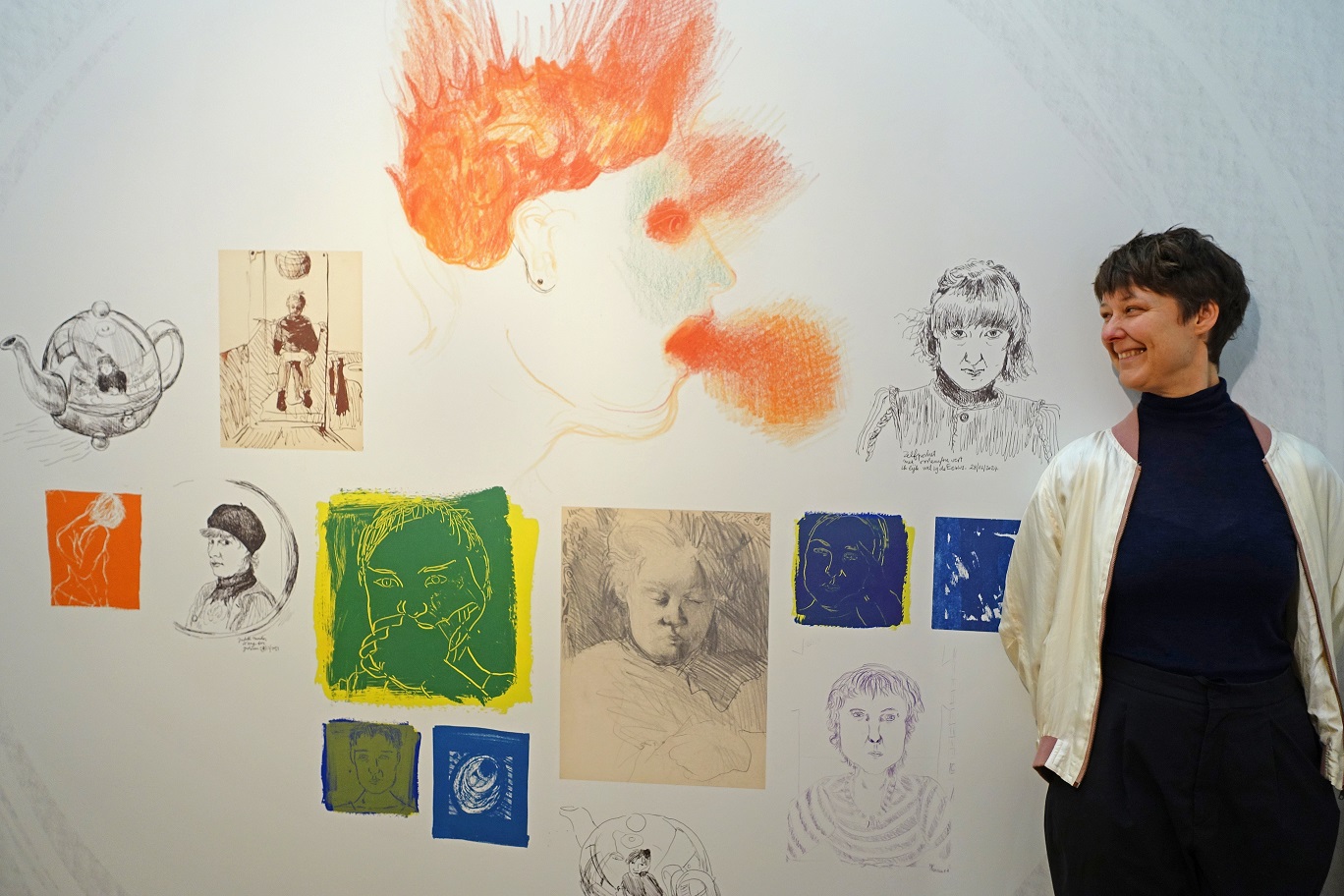When Judith Vanistendael burst on the comics scene in 2007, it was still very much a man’s world. “It was lonely back then as a woman,” she says. “Things have fortunately changed a lot since my early days but are not yet as they should be.”
In 2021, Vanistendael received the award for best Dutch-language comics album, the first female artist to do so. Last year she won the prestigious Bronzen Adhemar for comics in Flanders, which was only won by one woman before, some 35 years ago. But Vanistendael, who also teaches her craft to aspiring comic artists, says there is still a gender gap. “Most of my students are women, but the few men on average still get published faster,” she says.
Vanistendael describes her work, currently on show in the Comic Arts Museum in Brussels, as intricate stories that move readers and make them think. The daughter of the writer Geert van Istendael, she is known for tackling tough topics in a human, poetic and accessible way, using humour to lighten the atmosphere.
Her acclaimed 2007 debut, ‘The Virgin and the Negro’ describes her relationship with a man from Togo seeking asylum in Belgium. In ‘When David Lost his Voice’ (2012), the title character and his family members struggle to come to terms with a terminal illness.

From De walvisbibliotheek
In ‘Penelope’ (2019), she reverses the gender roles in Homer’s Odyssey and has her female protagonist leave her daughter and husband behind as she heads to war-stricken Syria, saving lives as a surgeon. “I find it very interesting to deal with taboos. Stories, like in comics and graphic novels, are in fact very strong weapons that can change society.”
Her growing international profile is burnished by her stories that play out in different countries. “That’s entirely natural to me since I grew up in an international environment,” she says. “We regularly travelled abroad, and my family had friends in many countries.”
Vanistendael went to Norway to work on her upcoming album. In it, she portrays a 65-year-old version of herself as a climate refugee in 2070, who flees a flooded Belgium and ends up at the Lofoten Islands in northern Norway. “In our region, we always think of the others as refugees, but what if happens to us?” she says.

